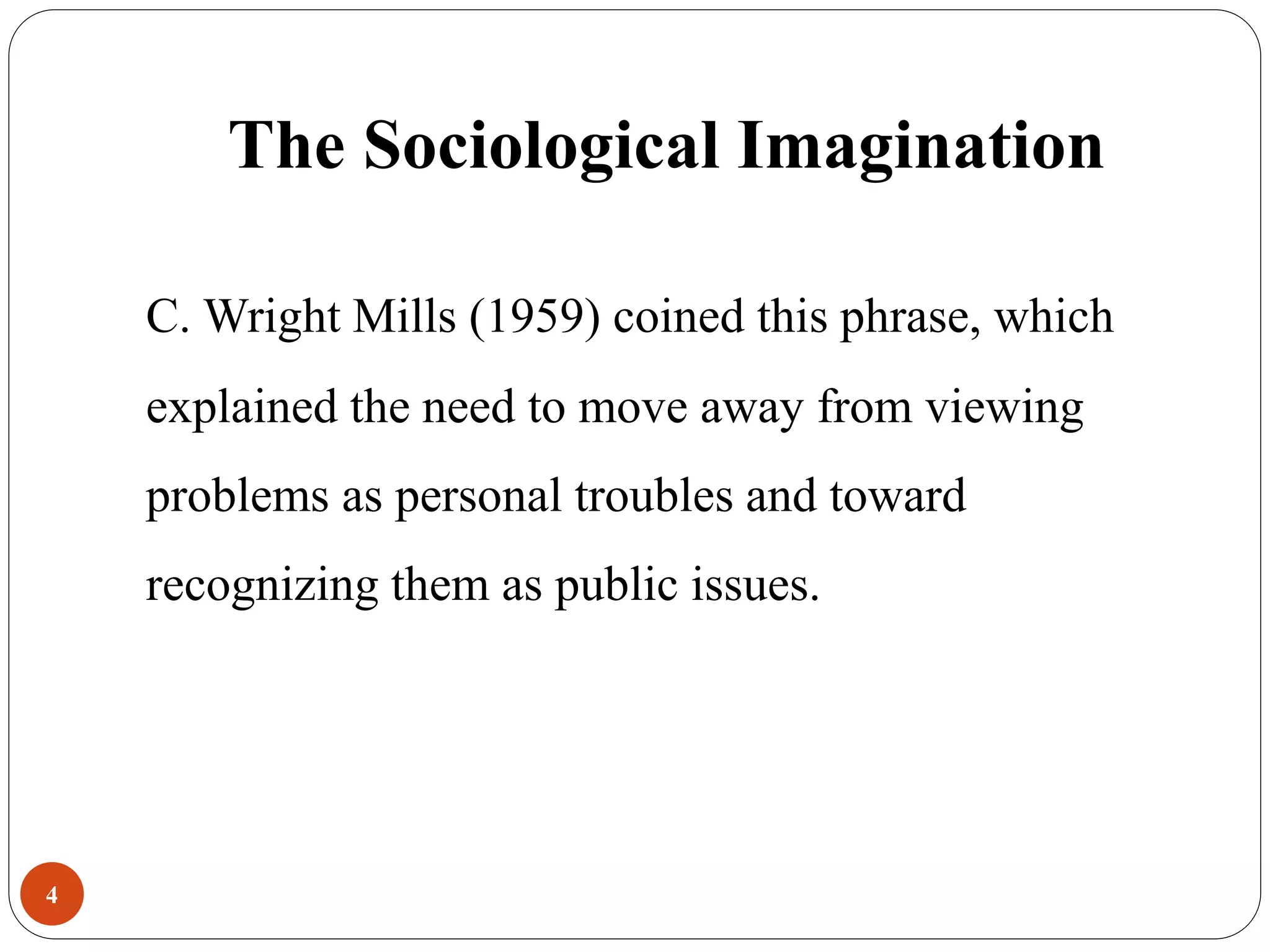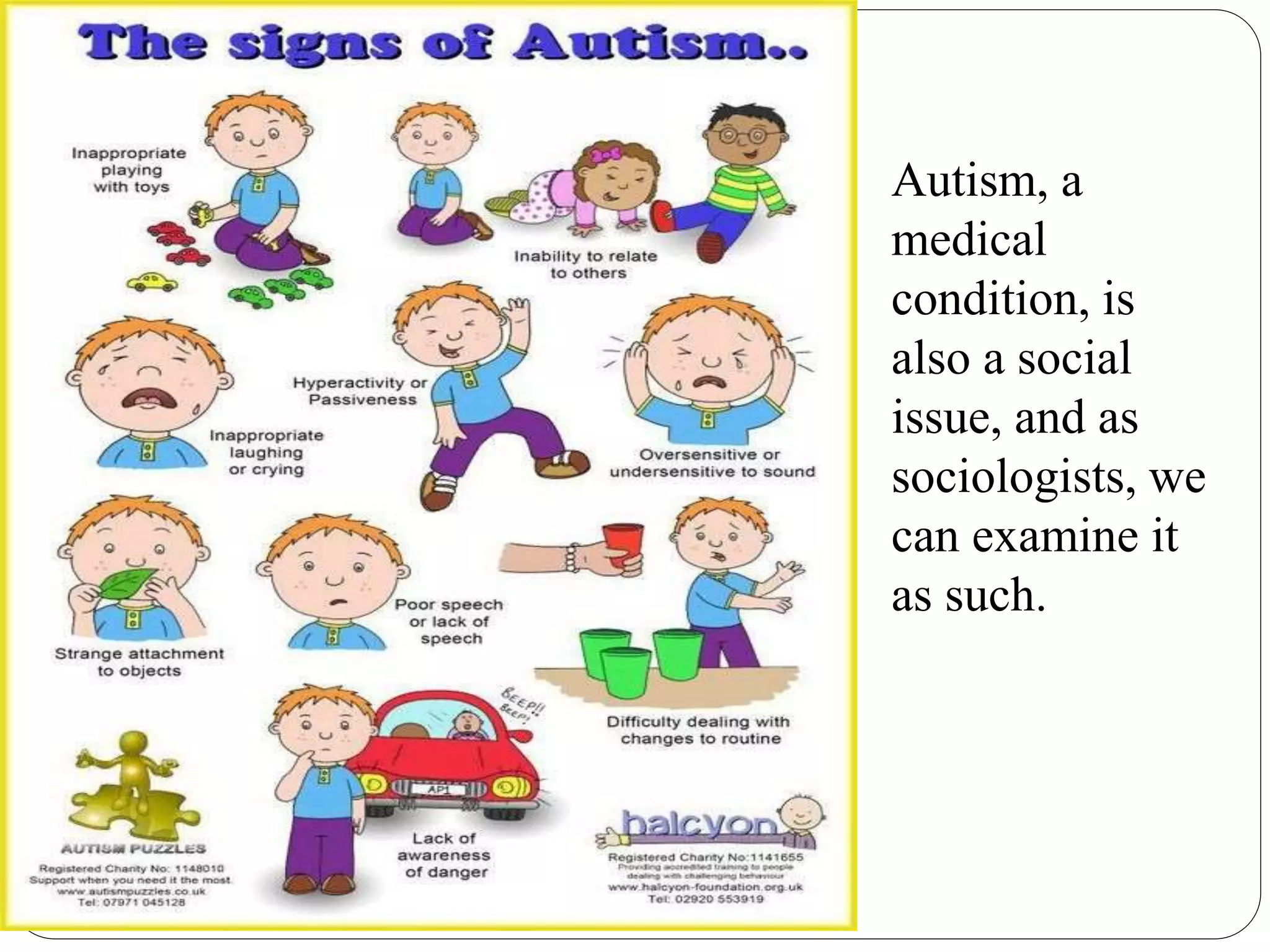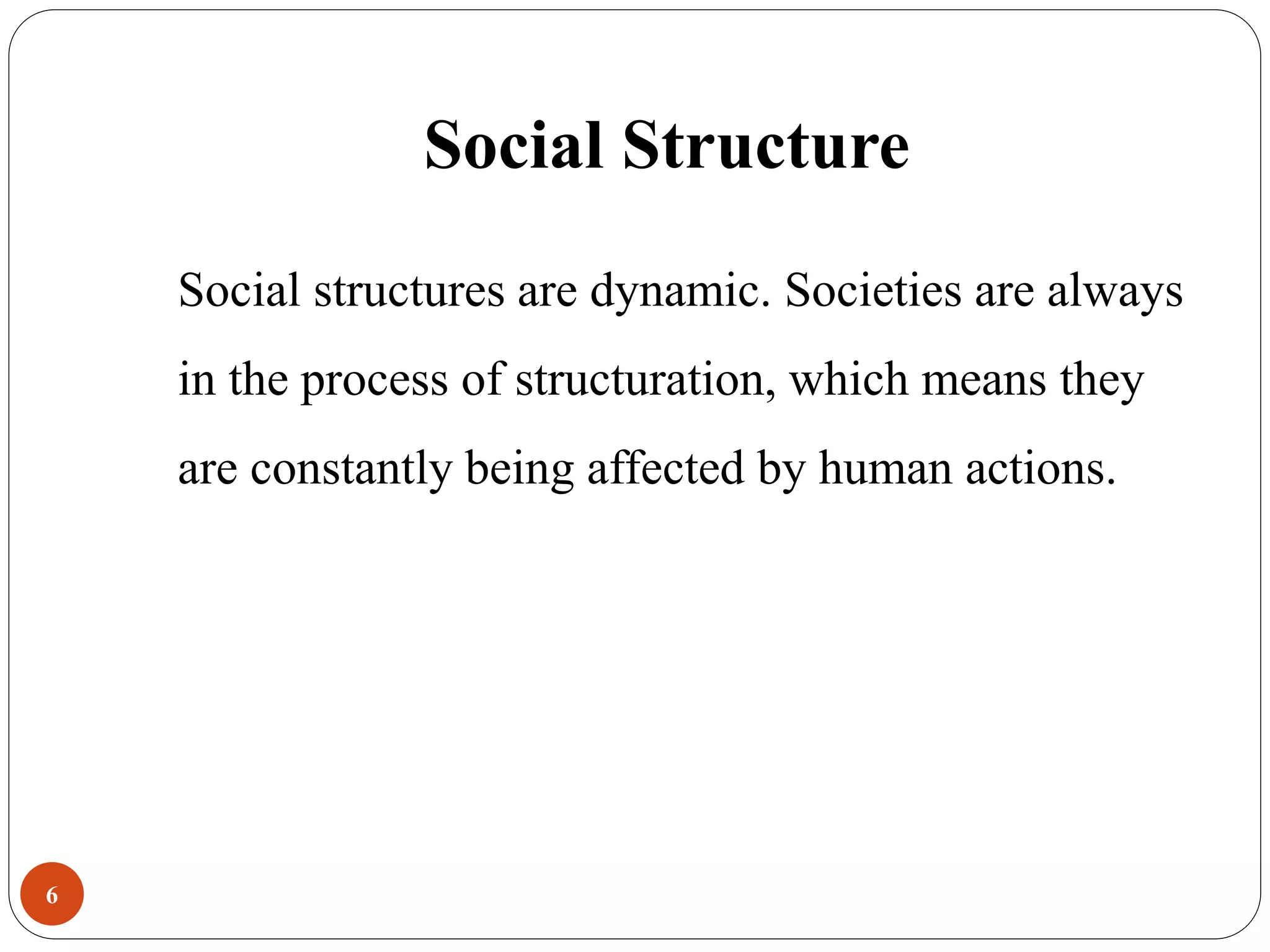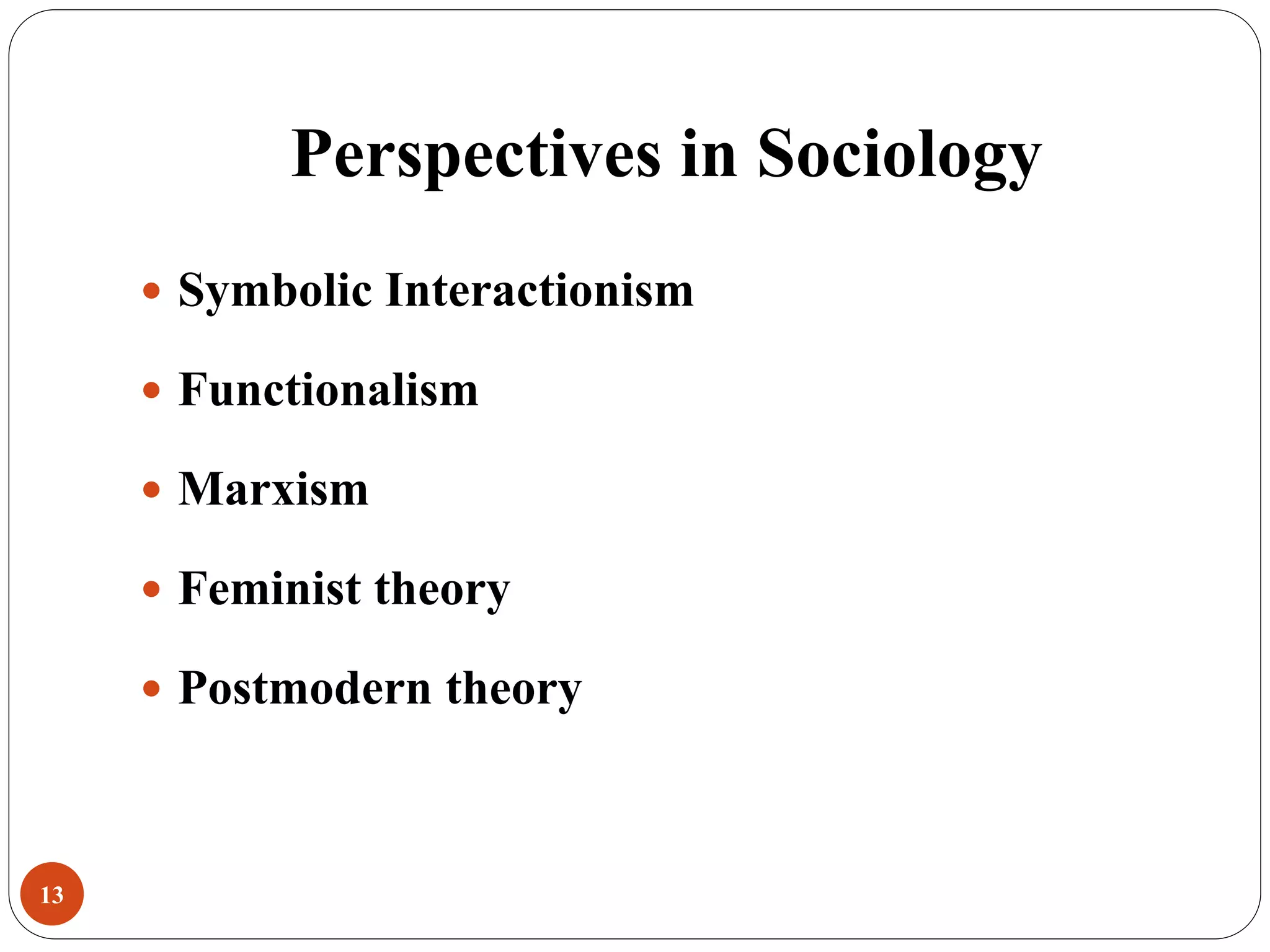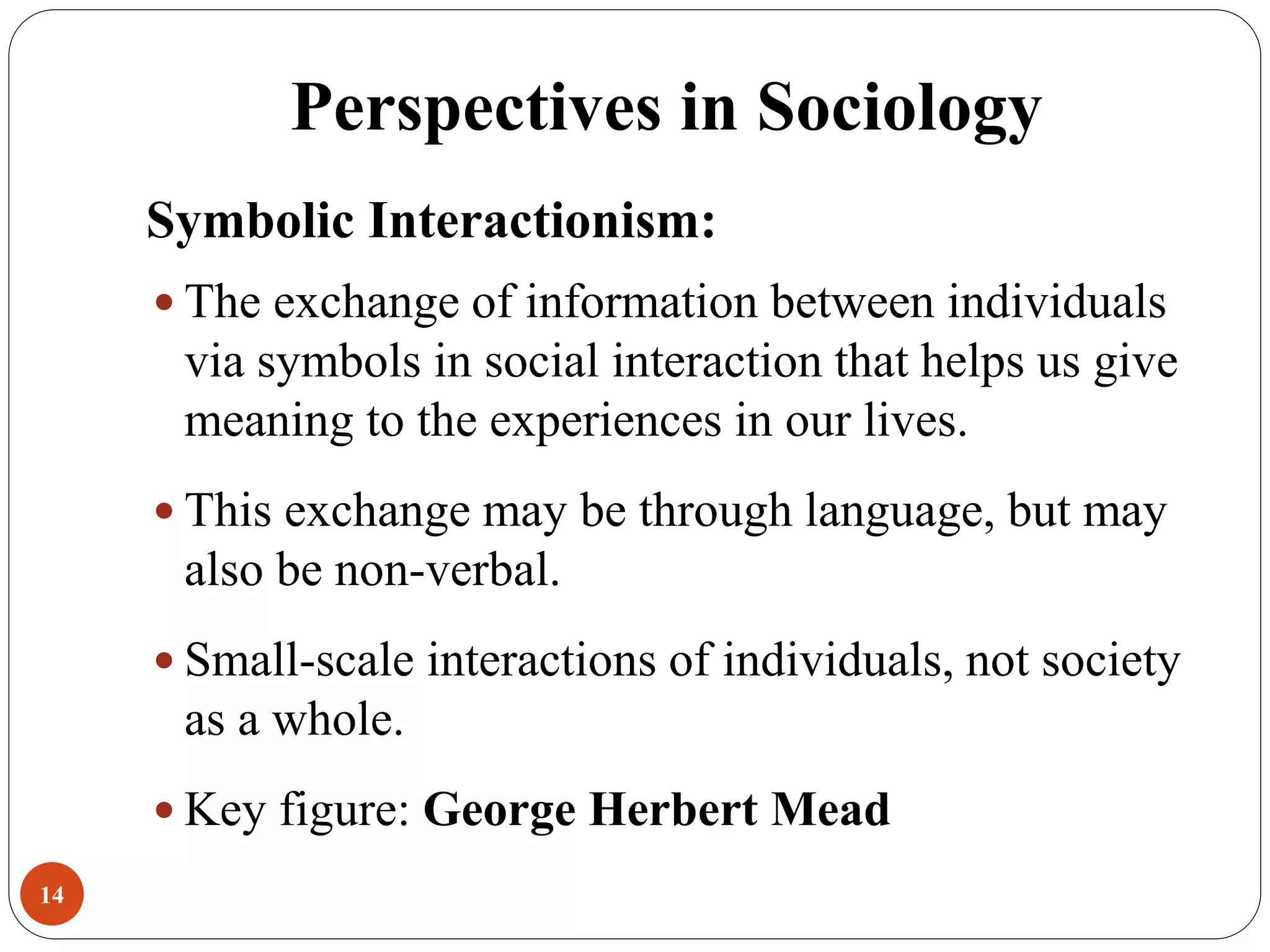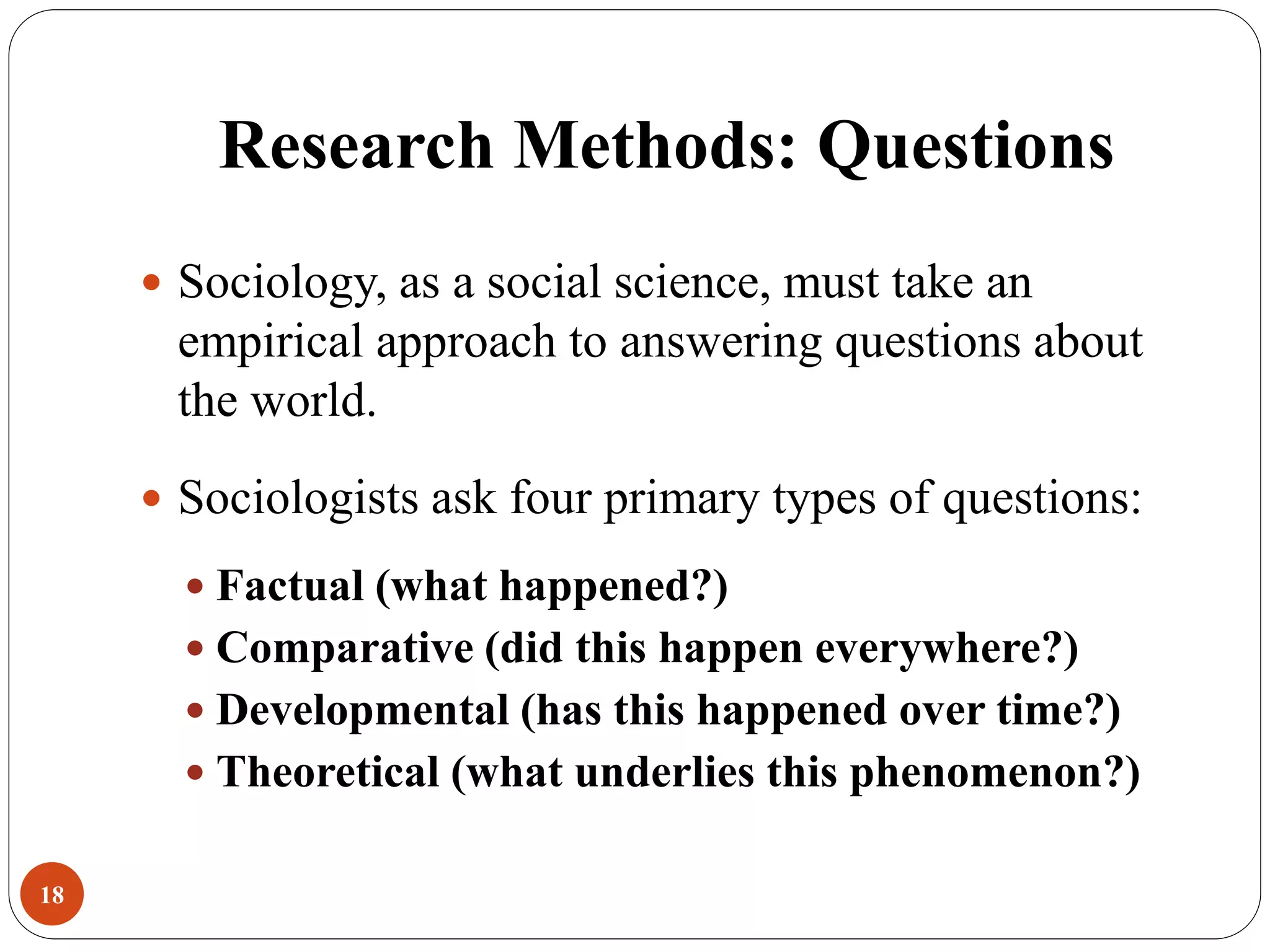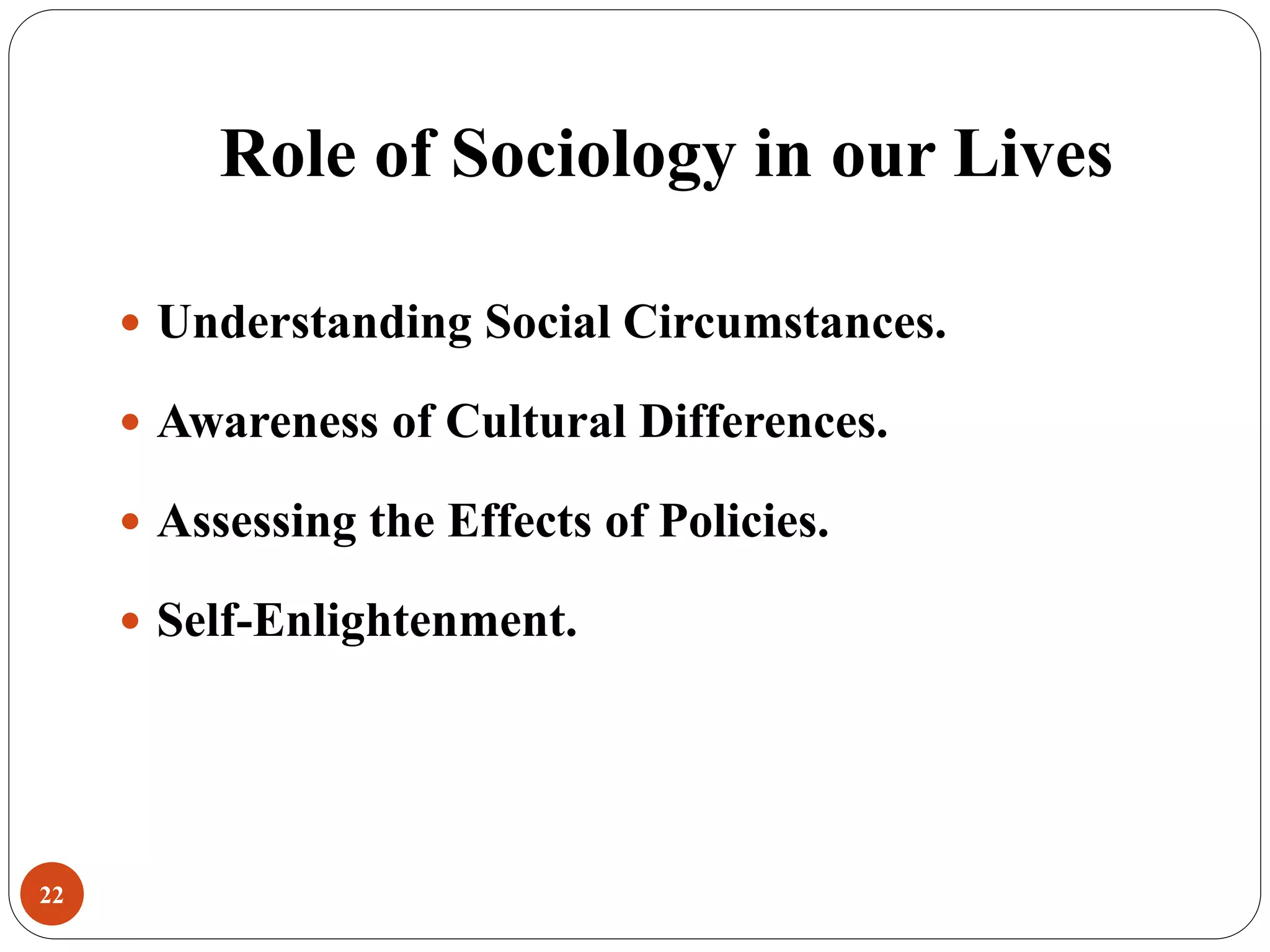Sociology is the scientific study of human social life, groups, and societies. It uses the scientific method to make verifiable observations about social phenomena. Sociologists examine social structures and how they are constantly changing due to human actions. They also study social issues from a global perspective and use different theoretical perspectives like functionalism, conflict theory, and symbolic interactionism. Key early theorists who helped develop sociology include Comte, Durkheim, Marx, and Weber. Sociologists conduct research using various methods and ask questions to better understand social phenomena at different levels of analysis.



